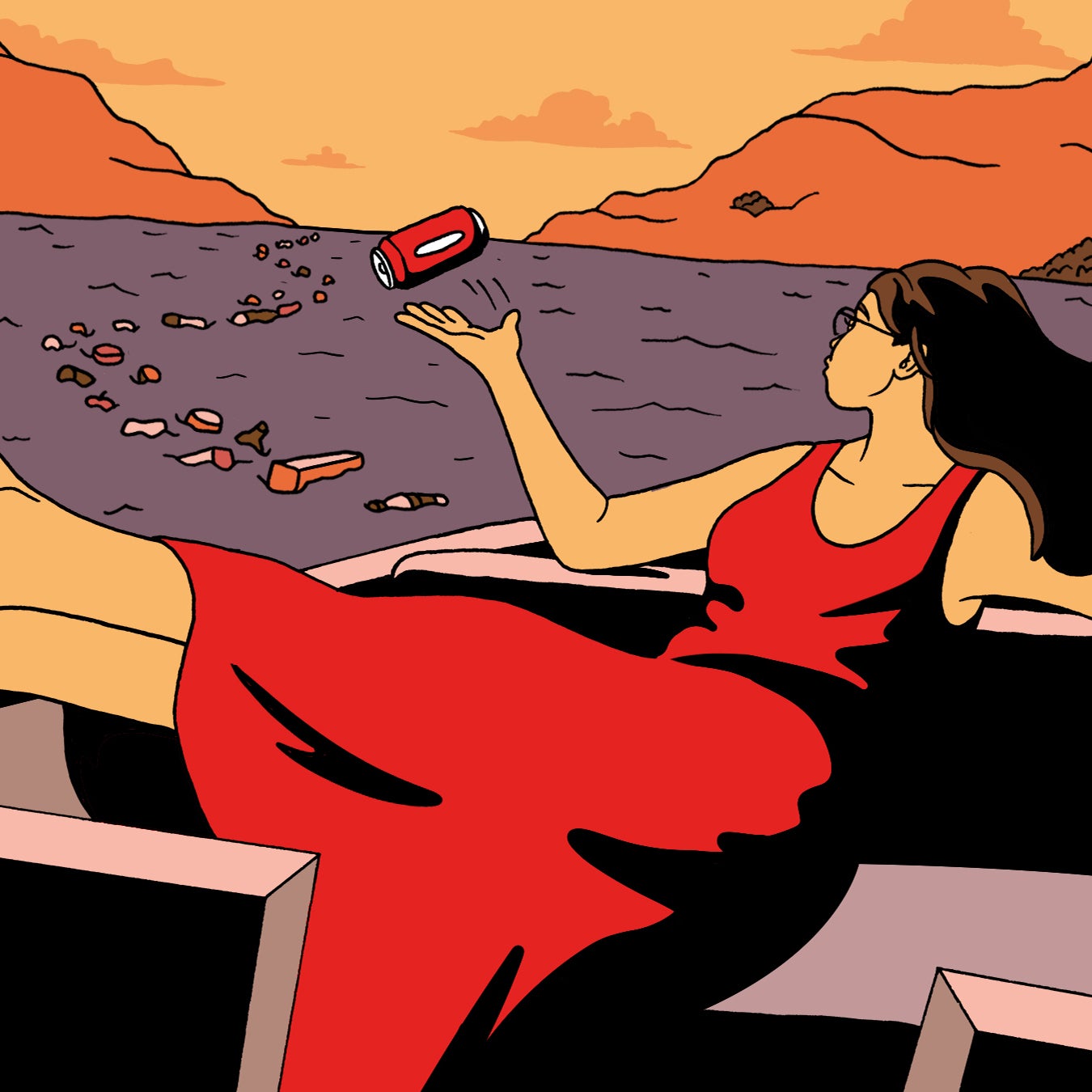Dear Sundog:��I hate Lake Powell. Is it OK to throw trash in it?��
—L���ٳٱ�����Բ�
Dear Littering:��Your question is absurd. This is a magazine for nature lovers, and nature lovers don’t litter, especially not in nature! Sundog’s attorney has advised him to state that chucking trash in Lake Powell, part of the national park��system, is a crime punishable by up to six months in jail and up to $5,000 in fines.
Yet, let’s take a closer look at this ethical query. Lake Powell is the 254-square-mile reservoir behind Glen Canyon Dam that fills the sandstone canyon upriver from the Grand Canyon. For many, the redrock, green water, and blue skies are the essence of beauty: a summer haven for houseboats and waterskis. For others, it’s an ugly graveyard, the evidence of one of our nation’s most hideous acts of industrial hubris, damning the Southwest’s largest free-flowing artery, the Colorado River.
Sundog first arrived on the lake nearly three decades ago after his first run through Cataract Canyon, which at flood stage boasts America’s biggest whitewater, ending unceremoniously in the slackwater of Lake Powell. I was a rookie boatman. The white-bearded guide had just successfully piloted our J-rig snout pontoon boat through the series of 30-foot waves in a single day. As we puttered through the hot canyon, the 100-degree breeze dried��our soaked clothes.��We broke into the cooler for beer and snacks.��The guide chomped at an apple and then, from behind his silt-spotted sunglasses, muttered, “Lake Foul,” and chucked the core overboard.
We rookies looked at each other in shock. We’d just completed our training on the principles of ��and would soon be��guiding across these waters our own rafts of greenhorns, who would invariably ask what to do with their own banana peels. We were also aware that the reason we were motoring across a reservoir instead of running a dozen or so additional rapids was because those rapids had been flooded. With a sudden burst of taboo glee, we flung our orange peels and soggy bread and paper sacks into our wake, watching��them swirl in the foam as we putted past.
Answering your question, Littering, pits two of the West’s prophets against one another. On one side is , who quoth: “Give a hoot, don’t pollute.” On the other is Ed Abbey,��who gleefully tossed empty Schlitz cans out the window of his Cadillac: “Of course I litter the public highway,” he wrote. “Every chance I get. After all, it’s not the beer cans that are ugly; it’s the highway that is ugly.”
We must consider the difference between the environmental and the social impacts of our behavior. Most of what we learn from Woodsy Owl and Leave No Trace is social. For example, on a river trip, it makes no difference to the ecology of a desert river canyon where you pee. But peeing on the beach stinks��and turns an otherwise��pristine camp into a skeezy freeway underpass. So we piss in the river, not to protect the “environment” but to improve the aesthetics for the next human visitors. If our only concern was nature’s well-being, I’m afraid to tell you that our best behavior would be to stay far away from nature��and not buy the gasoline, pickup trucks, polyester garb, and plastic rafts that must be manufactured for us to enjoy it.
Abbey’s line of thinking is correct: the devastation to the Colorado River and its plants and animals and fish wreaked by Lake Powell will forever dwarf any damage we could do with our outboard motors, pee and poop, sunscreen residue, and piles of trash. The only real impact is social—that is, houseboaters and wakeboarders down the lake will be irritated to find litter bobbing against the otherwise pristine rock walls. How irritated? So much that the Park Service has established a confidential tip line called “Powell Watch”��for lawful jet skiers to rat out the litterbugs. Employing the familiar War on Terror tagline “If you see something, say something,” the gubment would have us believe that dropping a wee turd on the sand is tantamount to dropping a suitcase bomb on the subway.
Let me suggest a societal lesson. The pristine beauty of a reservoir allows people to confuse it for God’s creation; indeed, Ol’ Sundog himself squandered afternoons of his youth racing speedboats in circles on Reservoir Powell for no purpose other than draining the gas tank and letting the hot wind feather his hair. But we can’t confuse the simulation of nature with the real thing. Lake Powell is industrial blight, a government boondoggle whose purpose was to provide the water and power that has allowed nearly 5 million souls to settle in air-conditioned comfort in greater Phoenix, a desert that might otherwise be classified as unsuitable for human habitation.
Not only is your litter ecologically negligible, but it also��serves a valuable function in teaching us the difference between nature and industry. As far as Sundog is concerned, the only thing that might improve Lake Foul more than litter would be graffiti spray-painted on its walls. (This also is illegal, by the way.) Ultimately, when a tourist arrives at the shores of the lake, instead of thinking, “This is gorgeous! Let’s jump in!” she should declare, “What a mess! Let’s get rid of this eyesore!”��
Let’s get down to specifics. Is it OK��to throw glass in the reservoir? On a river expedition in Central Asia, Sundog��was instructed by the guides to fill his beer bottle with river water and fling them into the current, where they would sink to the bottom of the channel and be ground to sand by the rocks. Great idea! However, since what remains of Lake Powell’s channel is caked with silt, bottles will not disintegrate��and, as water levels ebb, will likely end up underfoot, ending someone’s vacation with a trip to the ER, which is in Sundog’s opinion too high a price to pay for this political lesson. I advise against it.
As for your basic organic materials—apple cores, banana peels, orange rinds, brown sacks of gorp soaked upriver in the rapids—your own heart will provide the answer. Hold the litter in your hands as you gaze over the glistening water. Scan for rangers. Maybe toss a peanut or a cherry pit as a test. Does it bring you joy? If yes, then chuck the rest. Chuck it all!
Except, of course, for plastic bottles and aluminum beer cans.
You should recycle those.


